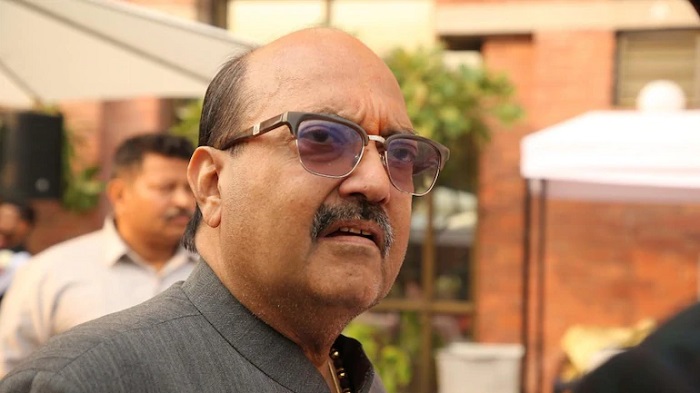Mumbai, Sep 11: Under fire for its decision to ban slaughter and sale of meat in the city for two days during Jain festival 'Paryushan', the Municipal Corporation of Greater Mumbai (MCGM) today told the Bombay High Court that it has decided to withdraw its decision.
MCGM informed the court of its decision during the hearing of a petition filed by meat sellers challeging the four-day ban on meat sales, which included two-day ban by the state government.
While the civic body announced the ban for September 13 and 18, the government had banned it for September 10 and 17.
BMC's decision would mean that the city would now go without meat only on September 17.
Senior counsel N V Walawalkar, appearing for MCGM, told a division bench of Justices Anoop V Mohta and Amjad Sayyed that the civic body today decided to withdraw its September 1 circular imposing a ban on slaughter as well as sale of mutton and chicken in the city on September 13 and 18.
"Keeping public interest and the sentiments of Mumbaikars, in mind it has been decided to withdraw the circular," Walawalkar said.
The high court was hearing a petition filed by Bombay Mutton Dealers Association challenging the ban. The petition also challenged the state government's decision banning sale of meat on September 10 and 17.
After the civic body informed the High Court about its decision to withdraw the ban, the bench, which had concluded hearing arguments of all the parties, posted the matter for orders on September 14.
During hearing of the petition, the high court today criticised the civic body and government's decision and said such restrictions cannot be imposed in a city like Mumbai.
"Mumbai city is cosmopolitan and multi-faceted where there is no sizeable amount of population from one sect. Hence can such a ban be imposed? In a city like Mumbai, there cannot be such bans. We are concerned about people who eat non-vegetarian food more. There are certain communities who do not eat vegetarian much," the court said.
"There is a progressive look attached with Mumbai. Such decisions are regressive in nature. What to eat is an individual choice. How can you restrict that?" the court said.
The court also sought to know the rationale behind permitting sale of fish, seafood and eggs. "How are fish and eggs different? Killing them is not violent? What is the rationale behind such a decision?" it said.
To this, Advocate General Anil Singh said "fish dies the moment it is taken out of water. Hence, there is no death due to slaughter."
The court also felt that the ban on some days during the nine-day Prayushan was absurd.
"What is the idea of having the ban on some days and allowing slaughter and sale of meat on other days? Is it that there is no sentiment on one day and the next day you are filled with sentiment? What is the idea behind this?" the court said.
The High Court also suggested that the government formulate a uniform policy throughout the state.
"In Mira Bhayandar, the ban is for eight days while here in Mumbai it is for four days. Why cannot the government formulate a uniform policy that will be applicable to all the corporations and district councils?" it said.
Advocate General Anil Singh argued that the government has to take care of all communities. "The ban is only on slaughter and sale of meat on those two days. There is no ban on consumption of meat. We are not going to go into people's kitchen and say you cannot eat meat."
Apart from the mutton dealers, the Poultry Association also filed an application challenging the ban.
Senior counsel Zubin Behramkamdin argued that while it can agree to ban on slaughter of meat on the two days declared by the government, there cannot be a ban on sale. "Sale should be allowed. All communities have fasting period. If tomorrow every community starts asking for ban, then will the authority allow it? We are losing our livelihood," he said.
The petitioners have claimed that the decision is unconstitutional as it affects the livelihood of a section of people and favours a small percentage of population. It also goes against the secular fabric of the constitution, they have said.






Comments
Add new comment